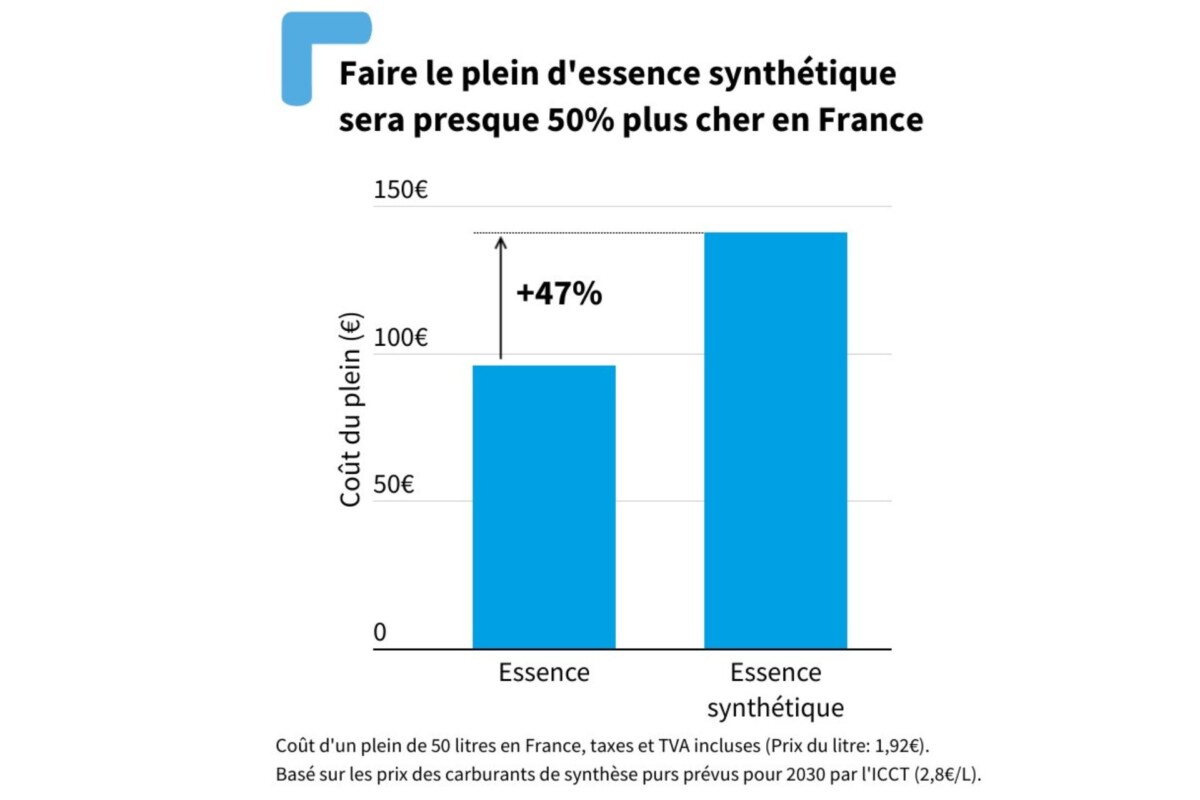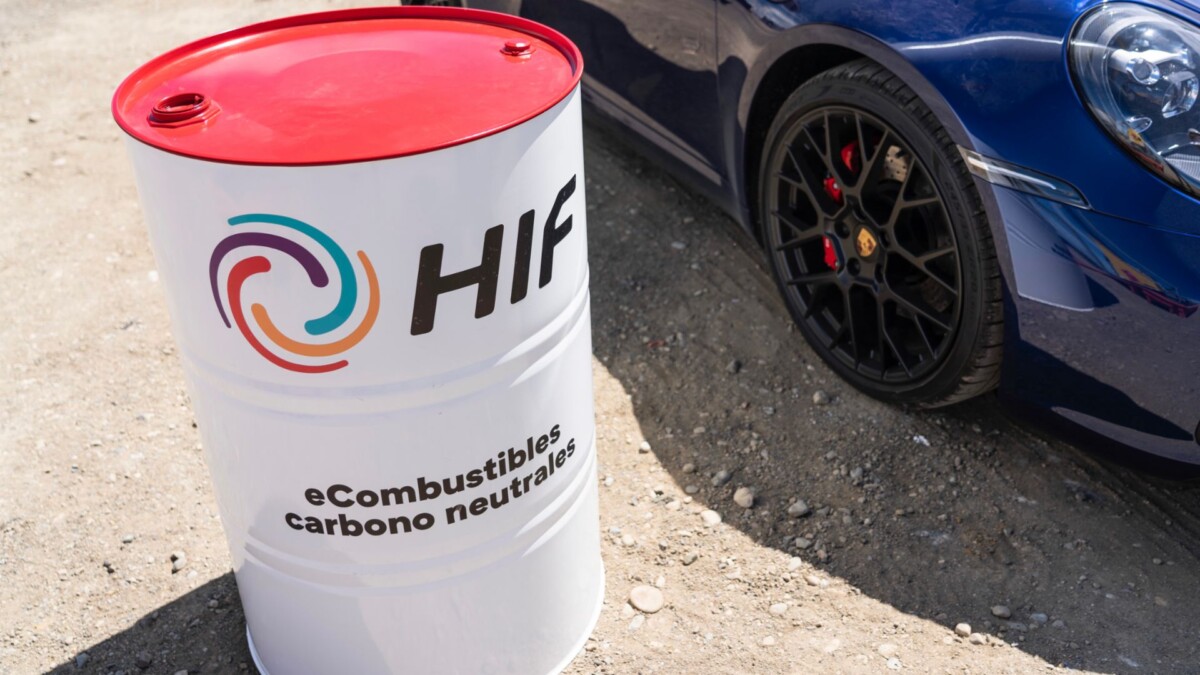Firmly opposed to the ban on thermal cars in Europe, Germany could finally win the case. But if synthetic fuels end up being authorized, it will not necessarily be a gift for motorists and the planet. We explain the reasons to you.
From 2035, it will no longer be possible to buy any new thermal car. This is in any case what the European Commission wants, while this decision was recently voted by Parliament. But things aren’t that simple, since this measure must now be approved by member countries. However, nine of them refuse to play the game.
A rising price
Among them, Germany. The government wants the European Union to include synthetic fuels in the exemptions, while Porsche has been working on developing them for many years. At the insistence of Chancellor Olaf Scholz, the major authorities have decided to review their copy and propose a solution. But this one is not really a gift.
Indeed, if thermal cars could still be sold after 2035, theEurope says they will have to run only on e-fuel. This means that manufacturers will have to develop a system capable of detecting the presence of conventional gasoline and preventing the engine from starting. A worrying measure according to Transportation & Environmentwhich sounds the alarm in a report just published.

The NGO, which recently warned about the relocation of battery production to the United States, is concerned about the impact of this decision on the finances of motorists. In effect, synthetic fuel is currently very expensive. The company Zero Petroleum offers barrels at around 56 euros per litre. Of course, this rate is expected to drop over the next few years, but it will remain high.
The organization announces a liter exceeding 2.82 euros in France in 2030 (according to forecast data from the ICCT), which is about 50% more than the gasoline currently sold. It will take between 1,692 and 2,538 euros per year just for fuel, at the rate of a single fill-up per month, which means that only the wealthiest drivers will be able to continue driving in a thermal car. The others will have to drive electric, in a second-hand petrol or diesel car, or find ways to get around the rules.
Remember that it will still be possible to drive with classic thermal cars, running on petrol, diesel, or LPG, if these are second-hand, and were therefore produced before 2035. The objective is to succeed in having a car fleet that no longer emits CO2 by 2050, since the lifespan of a car is just under 15 years.
A negative impact on the environment
But that’s not all. Because if synthetic fuel is very expensive, so much so that Porsche is currently looking for public aid to lower the price, this is not the only drawback. On paper, this alternative is however very attractive: it does not change driving, as we were able to test and it does not require fossil materials. But in reality, it’s a little different.
In effect, the production of e-fuel still requires a significant amount of energy and especially electricity. However, we know that production is not 100% clean, unless only green energy is used. In addition, synthetic fuel absolutely does not prevent the discharge of polluting gases such as nitrogen dioxides (NO2) as well as nitrogen oxides (NOx) which are very harmful to health. The exhaust continues to emit CO2, which is supposed to be captured later during fuel production. Like a closed circuit… but worldwide.

According to T&E, cars running on this type of fuel could emit up to 160,000 tonnes of additional NOx in the European Union alone by 2030. Moreover, if thermal vehicles running on synthetic fuel were authorized after 2035, they could prevent the sale of 46 million electric cars, considered cleaner. Even if these are not always exemplary either.
This is particularly the case for SUVs, which would be particularly polluting during their manufacture and which could contribute to a battery shortage in the coming years. Transport & Environment believes that Germany jeopardizes the ecological transition in Europe and could also cause manufacturers who are investing heavily in electrics to lose money.
Our colleagues from Numerama are launching Watt Else, their newsletter dedicated to the mobility of the future. Sign up here to make sure you receive the next issue!
